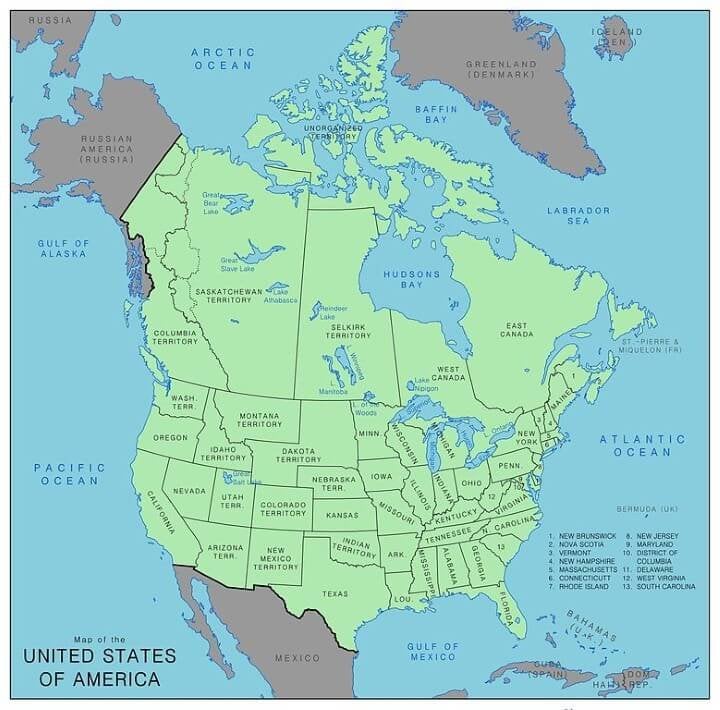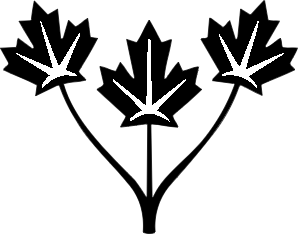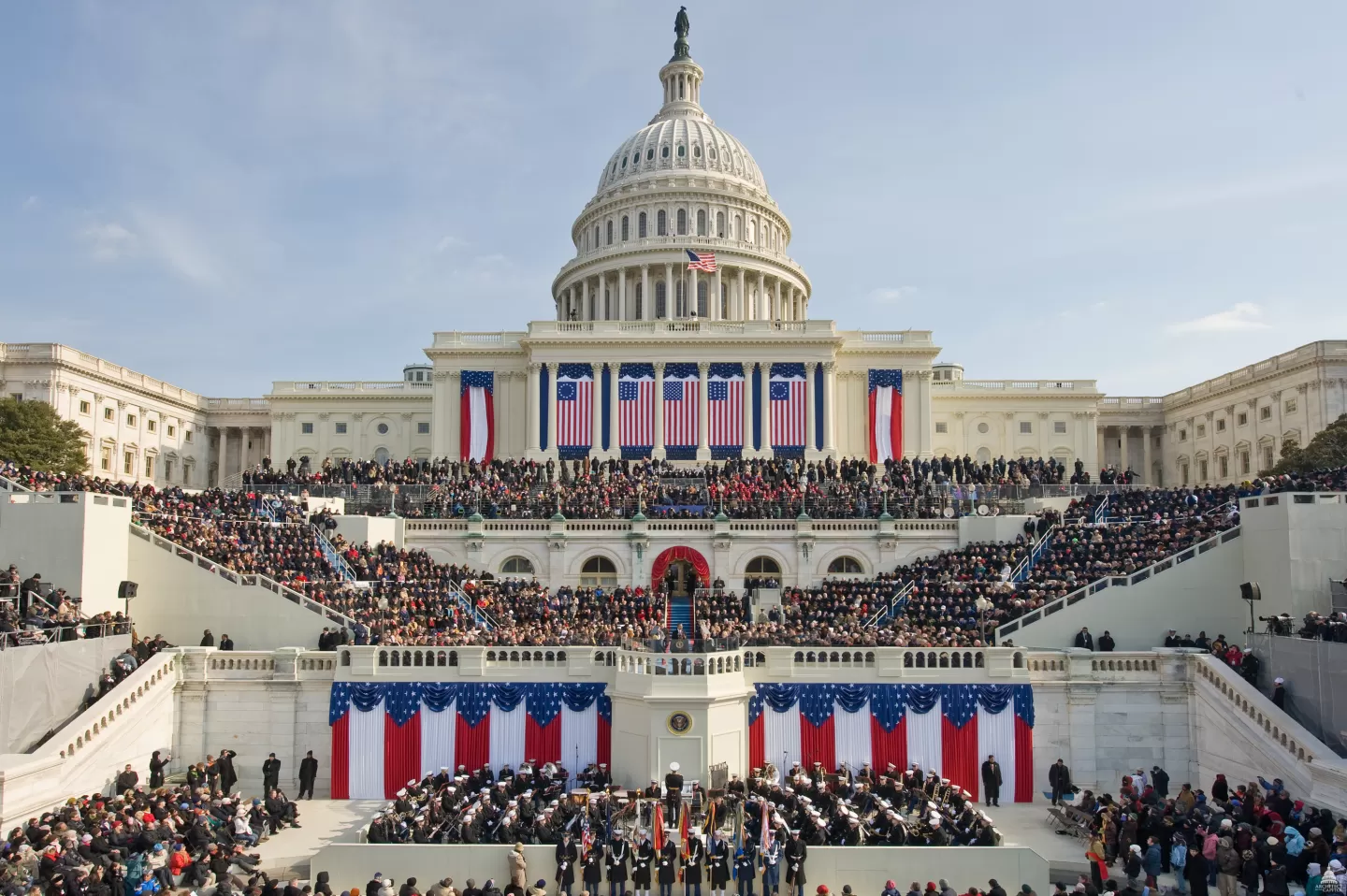Loyalist № 1
To the Peoples of North America, this being a Loyalist response to Federalist No. 1:
Much chatter has been made about the President-elect’s musings that Canada should join the Union as the 51st state. It was initially dismissed south of the border as “a joke” and then rapidly escalated to unveiled conversations about outright annexation. The idea had always received a more sober reception here, and for good reason. That Canada could, should, or inevitably would join the United States is not a novel idea. On the contrary, it has gripped the American imagination since the time of the Revolutionary War.
One of the earliest goals of the Continental Congress was to seize nearby British-controlled colonies, recruit Our inhabitants to the cause of the rebels, and present a united front against the Crown. Rebels marched on the Province of Québec, then commonly referred to as Canada, in 1775. They were pushed back by the Loyalists, and by the following year the British had retained a foothold in North America. A mass migration of Loyalist subjects soon streamed across the frontlines, further reinforcing British control over Canada.
Echoes of the original idea pushed President James Madison – one of the authors of the Federalist Papers – to invade the same territories in the War of 1812. His justification for the unprovoked conflict was that those who had continued to remain loyal to the Crown needed to be “liberated,” just as the original Thirteen Colonies had been. The effort failed once again. Despite the British holding significant tracts of American territory by 1814, the boundaries between the United States and British North America reverted to the status quo ante by the time peace was restored later that same year.
The Americans have also sought to achieve the same objective by less direct means. The Articles of Confederation, which formalized the alliance of the Thirteen Colonies in 1777, expressly anticipated that Canada would eventually side with them against the British. Article XI provided that:
Canada acceding to this Confederation, and joining in the measures of the United States, shall be admitted into, and entitled to all the advantages of this Union; but no other colony shall be admitted into the same, unless such admission be agreed to by nine States.
The scope of this provision was later expanded in the U.S. Constitution to allow for the admission of any number of “New States” to the Union.1 Further, the federal government was, and still is, obliged to “guarantee to every State in the Union a republican form of government.”2 The idea of a limitless expansion of the United States would later become known as Manifest Destiny – a doctrine according to which America claimed the inherent right, and even duty, to spread republicanism far and wide.
Similarly in 1866, the U.S. House of Representatives briefly considered an “Annexation Bill” that would have empowered the President to absorb into the Union the still-as-yet disunited colonies of British North America. The bill proposed adding not one new state, but four, along with three territories. (The far north would have been left unorganized.) The bill failed to pass the House and was never taken up by the Senate, no doubt because of more immediately pressing business in the brutal aftermath of the American Civil War.

Had twentieth-century history taken a slightly different direction, the Americans might well have achieved the full vision of the Revolutionary War. During the interwar period of 1919-39, military leaders developed and several times updated plans for the full-scale, pre-emptive invasion of Canada. Declassified only in 1974, “War Plan Red” was to have been activated in the event of armed conflict with the United Kingdom. The strategy remained essentially the same as in 1775: eliminate the British foothold in North America and foist statehood upon the Loyalists. It reads: “The policy will be to prepare the provinces and territories … to become U.S. states and territories … upon the declaration of peace.”
In the years leading up to America’s entry into World War II, the American Nazi Party had been agitating for the United States to abandon neutrality and side with Hitler’s Germany. Had America fallen prey to fascism, War Plan Red may well have become the blueprint for America’s own Anschluss of its predominantly English-speaking neighbour.

Federalist No. 1 asks “whether societies of men are really capable or not of establishing good government from reflection and choice, or whether they are forever destined to depend for their political constitutions on accident and force.” Are we ruled by historical circumstance, or by free political choice?
Alexander Hamilton, the author of that introductory essay, goes on to outline the arguments that will be methodically taken up in the 84 papers that follow: that the Union of the colonies is essential for political, economic, and military reasons; that a looser alliance of the colonies cannot safeguard freedom, security, or mutual interests; that to be fully consistent with human nature, good government – if it is to last – can only emerge from a republican constitutional order.
These are universalist ideals. They contain within themselves justifications for the kind of expansionism that variously took the form of the Louisiana, Gadsden, and Alaska Purchases; the annexation of Texas; the Spanish and Mexican Wars; and the American Indian Wars – all with the goal of uniting North America under a single republican government. In this context, the failure of the War of 1812 left unfinished what is, perhaps has always been, the real American Dream.
In Pierre Berton’s telling of it, the final outcome of the War of 1812 was supremely ironic. Prior to the invasion, the colonists of Upper and Lower Canada seemed to have less in common with one another than they did with the Americans. Berton speculates that, in time, economic forces would have compelled them to join the Union for purely practical reasons. But after the burning and razing of settlements on both sides of the border, the shared experience of war and resistance gave birth to bitterness and polarization – and a new sense of common purpose and political identity in Canada. He writes,
We are Canadians and not Americans because of a foolish war that scarcely anyone wanted or needed, but which, once launched, no one knew how to stop.
Pierre Berton, “The War of 1812” (1980-81)
That identity is deeply tied to the Crown and the more carefully considered aspirations of peace, order, and good government. Unlike the Americans, there is no single point in time when Canadians decided what kind of country We would establish. We resisted the American rebellions against the Crown in 1775 and repulsed the invasion of 1812. We went on to establish responsible government in 1848; pieced together a confederation of four colonies in 1867; became fully self-governing with the Statute of Westminster in 1931. And then We patriated a new constitution with a Charter of Rights in 1982.
With each step, We responded calmly and deliberately to changing circumstances, keeping what worked and altering what did not.3 Some of these developments were inspired by the American experiment while others explicitly rejected its ideals. In true loyalty to the long continuity of parliamentary democracy, Canada’s destiny seems to have been to lend a voice of sober second thought to the feverish ideas of the American Revolution.

The American experiment is now in its 250th year. In that time it has faced crises of many different kinds: the Civil War and Reconstruction, two World Wars, the Great Depression, desegregation and the Civil Rights Movement, Vietnam, Watergate, the COVID-19 pandemic, and the assassinations of prominent civil and political leaders. And now Donald J. Trump – unstable, unlearned, unprincipled, undemocratic, and utterly uncouth – returns to office as President of the United States today at noon. ♛
Footnotes
- Article IV, Section 3, Clause 1: “New States may be admitted by the Congress into this Union; but no new State shall be formed or erected within the Jurisdiction of any other State; nor any State be formed by the Junction of two or more States, or Parts of States, without the Consent of the Legislatures of the States concerned as well as of the Congress.”
- Article IV, Section 4: “The United States shall guarantee to every State in this Union a Republican Form of Government, and shall protect each of them against Invasion; and on Application of the Legislature, or of the Executive (when the Legislature cannot be convened) against domestic Violence.”
- Our abandonment of the constitutional project in the early 1990s is, in this sense, a break from tradition. We will further explore the topic in Loyalist No. 2.




How do you think the historical attemps to annex canada by the US have shaped modern canadian identity and our relationship with the US?
The war of 1812 doesn’t seem to have the signfigance in Canada that the Civil War or American Revolutionary War has had on the US.
It’s true that the War of 1812 isn’t part of Canada’s national mythology in the same way that the other two conflicts you mention loom so large in the American imagination.
Pierre Berton’s argument that “we are Canadians and not Americans because of a foolish war that scarcely anyone wanted or needed” has more to do with the way that the War of 1812 changed the course of North American history: it unleashed forces that forever after would set the Canadians and the Americans in different political and cultural directions. It’s significant because without that war, in time we very likely would have simply merged into a larger Union with those to the south.
Even if we as Canadians don’t often think about those forces directly, they still play on our minds in subtle ways. Our habitual suspicion and even fear of the Americans is one way those forces remain active. So, too – and maybe more to Pierre Berton’s point – is our consistent tendency to define our country in direct opposition to the United States. That we so often struggle to define in more positive terms what it “means” to be Canadian no doubt has a lot to do with the fading of English Canada; Québec, interestingly, retains a much stronger sense of identity than perhaps any other part of Canada.
Later Loyalist Papers will address these kinds of questions more head-on. Looking forward to continuing that conversation!
—Gloriana.
Very compelling read. I wait with great interest for what is yet to come. Eventually, you will have to explain what is meant by the fading of English Canada. God Save the King!
Thanks for dropping by, Walsingham! We’ll consider the struggle to define Canadian identity more closely in Loyalist No. 2. Check back then!
God save the King and the King’s judges!
—Gloriana.